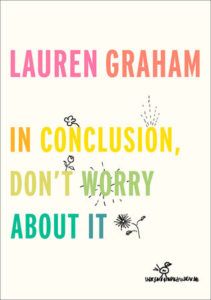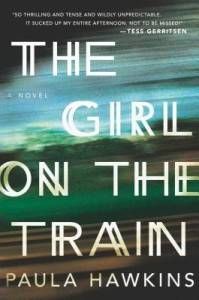Failure. It’s such a terrifying word for a first-generation Indian American whose parents busted their backs to get her a good education. I remember the first week after being a blur. But I’m not a woman to sit and wallow (enjoy some chocolate cake, absolutely). Instead, I had a nagging desire to do something. Apply to jobs, yes. Start a certificate program in editing, yes. But also, to be better—to learn lessons that only books could provide. I had read a respectable number of books in 2018 but hadn’t found one that ignited my old passion for stories. Most of those were read for work or school. Somewhere between getting my master’s and finding my first job, I had veered off the reading path that had grounded and challenged me my entire life. I was still reading, but uninspired. Odd that it took a terrifying life change to steer me back on the path. I wish I could say that I read some classical masterpiece, such as Doctor Zhivago or Sula. But then I’d be lying.
Inspirational Books
The first book I finished after losing my job was In Conclusion, Don’t Worry About It, a commencement speech by Laura Graham (our favorite Gilmore girl), whose dad Dad tricked her into speaking at her high school. Say what you want about commencement speeches, but they’re inspirational, and this one was precisely what I needed to snap out of my pity party. “I’ve had ups and downs. I’ve had successes and senior slumps. I’ve been the girl who has the lead, and the one who wished she had the bigger part. The truth? They don’t feel that different from each other.” I had to read these lines three times before it sunk in: success and failure aren’t the end of a story. The high of success is wonderful, but it doesn’t define you—the same goes for the lows of failure. I continued throughout 2018, picking up whichever book captured my fancy. That spark for reading the stories of others had been reignited, and I was in a bibliophile’s version of heaven. One day, I was wandering through a used bookstore in St. Louis and stumbled upon a little gem by Anna Quindlen called A Short Guide to a Happy Life. A guide for a happy life? Sign me up. “When you leave college, there are thousands of people out there with the same degree you have; when you get a job, there will be thousands of people doing what you want to do for a living. But you are the only person alive who has sole custody of your life.” A harsh dose of reality, but Quindlen reminded me that I can’t let the accomplishments of others diminish my self-worth. Also, I can’t assume that my degrees and experiences will dictate my success because they are external factors subject to the interpretations of others. They’re great. But nothing without me. It’s funny—in one way or another, I already knew these lessons. But it took a shattering life event to gain perspective. I realized that while books teach us new lessons, they also remind us of the old ones. The ones we should know but took time to accept.
The Realization
Chugging through the year, I began picking up books that introduced me to characters who faced insurmountable circumstances. The first full-length novel I read was The Girl on the Train by Paula Hawkins. How could a thriller be helpful? More specifically, how could an extremely popular one be helpful? But our protagonist is an alcoholic who’s not over her ex and fantasizes about a seemingly perfect couple she watches during her morning commute. I’ve also faced rejection and fantasized about a perfect life. Fortunately, my life didn’t unfold like Hawkins’s story, but I learned that it’s okay to dive into the tide of failure and take a few punches.
In Conclusion
Books gave me the confidence to apply for jobs I thought I’d never get. I eventually found one that I enjoy, but I refuse to get complacent again. Fast forward more than a year later, and I have read some amazing books I thought I’d never get to. The Handmaid’s Tale, Eve out of Her Ruins, and Sea Prayer. They’re harsh teachers, but the lessons are necessary and will stick.

